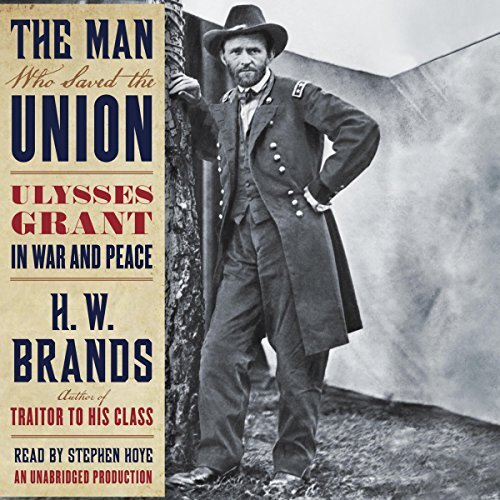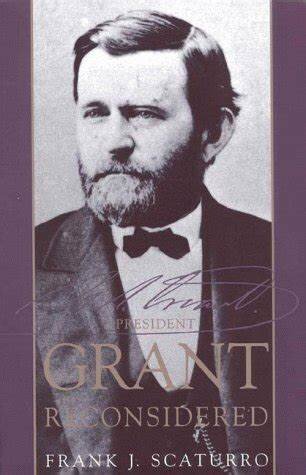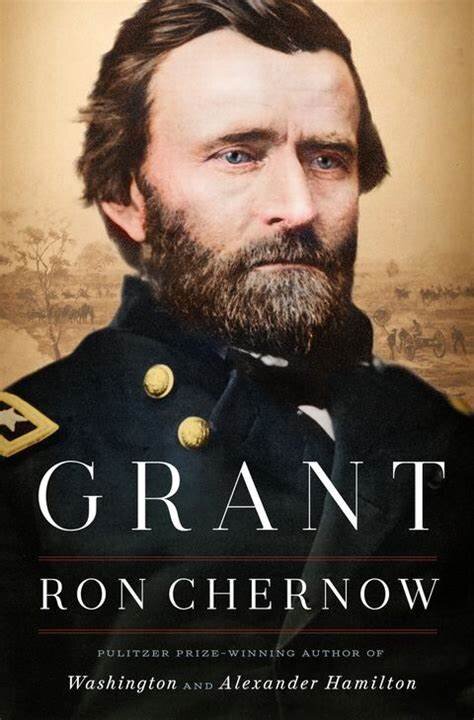The Civil Rights President
With the recent new national holiday, Juneteenth, I wanted to look at the Civil Rights record of an underrated President.
This man was the youngest President at the time of his election. He had no prior political experience. Yet, he arguably has the best Civil Rights record of any of our Presidents.
First, he encouraged the passage of a Constitutional Amendment to ensure African Americans the right to vote: “The right of citizens of the United States to vote shall not be denied or abridged by the United States or by any State on account of race, color, or previous condition of servitude.”
Second, this President worked with Congress to pass laws to enforce compliance with the voting amendment. Three laws were passed. They provided penalties for interfering with a person’s right to vote, including fines and jail time. It also allowed the President to use the army to guarantee voting rights. Further laws protected black rights to public facilities such as transportation and lodging.
Third, this President did not hesitate to use the authority provided to him by the above laws. He sent in troops to arrest those violating Black Civil Rights. Thousands were arrested and jailed, resulting in the dismantling of the Klu Klux Klan for over 50 years.
Fourth, this President established the Federal Department of Justice, responsible for Federal law enforcement and administration of Justice. Who was this President? Ulysses S. Grant.
U.S. Grant was elected President and served two terms from 1869 – 1877. You can start with his leadership of the Union armies. Freeing enslaved people required the North to defeat the South in the Civil War. Grant, as commander in chief of the Union armies, was the general most responsible for the Union victory. Later, as President, he strongly defended the rights of the newly freed slaves. The three laws Grant used to destroy the Klu Klux Klan were known as the Enforcement Acts or the Klu Klux Klan acts and were passed in 1870 and 1871.
Frederick Douglass eulogized Grant, stating: “...a man too broad for prejudice, too humane to despise the humblest, too great to be small at any point. In him the Negro found a protector, the Indian a friend, a vanquished foe a brother, an imperiled nation a savior.” Douglass further stated, “To Grant more than any other man the Negro owes his enfranchisement.”
After his Presidency, Grant embarked on a world tour. He visited Otto Von Bismarck, chancellor of the German Empire. Bismarck commented on the terrible cost of the American Civil War.
Grant replied, “But it had to be done.”
“Yes,” said Bismarck. “You had to save the Union….”
“Not only save the Union,” said Grant, “but destroy slavery.”
“I suppose, however, the Union was the real sentiment, the dominant sentiment, “said Bismarck.
“As soon as slavery fired up the flag, it was felt—we all felt, even those who did not object to slaves— that slavery must be destroyed,” Grant explained. “We felt that it was a stain on the Union that men should be bought and sold like cattle.”
Grant had several other achievements during his Presidency.
The first National Park in the United States, and maybe the world, was founded during his administration – Yellowstone National Park.
He maintained peace with Cuba. Americans sympathetic to Cuban freedom commandeered a ship to deliver troops and supplies to Cuban rebels. After capturing the vessel, the Cuban government executed several crew members, leading to popular demand for America to go to war. However, Grant’s administration negotiated a peaceful settlement, including reparations for the killed Americans (the ‘Virginius Affair,’ 1875).
Under this President, the United States signed what some have called “the greatest treaty of actual and immediate arbitration the world has ever seen.” After the Civil War, the United States demanded compensation from Great Britain for supporting Confederate merchant ship raiders. The United States and Great Britain resolved various issues by submitting to independent third party arbitration, a first in world history (Treaty of Washington, 1871).
Grant Shortly Before his Death
This President also worked to improve relations with Native Americans under what he called his ‘peace’ policy. As he stated in his inaugural address, “The proper treatment of the original occupants of this land, the Indians, one deserving of careful study. I will favor any course toward them which tends to their civilization and ultimate citizenship.” He criticized the treatment of Indians – “from the foundation of the Government to the present the management of the original inhabitants of this Continent, the Indian, has been one of embarrassment, and expense, and has been attended with continuous robberies, murders, and wars.” He also made the army protect Native Americans in reservations from white attacks more effectively and replaced corrupt government officials in charge of running the reservations with Christian clergymen. He believed that Christian clergymen would be more trustworthy and less likely to take advantage of the Plains Indians. Grant appointed Ely S. Parker as the Commissioner of Indian Affairs. Ely was from the Seneca tribe, making him the first Native American to hold a federal appointment. Despite these efforts, violence continued against Native Americans during Grant’s term. Though Grant’s policy was a bold departure from his predecessors and considered humanitarian for the time, it ultimately was not successful.
Although Grant was a brilliant general and President of the United States, his Presidency (especially his second term) was marred by allegations of corruption and a host of political scandals. These scandals tarnished Grant’s reputation. To address these problems, Grant founded the Civil Service Commission in 1871. The purpose of the commission was to eliminate nepotism and bias during the recruitment of federal officials.
Ironically, Grant lost almost all of his money in a Wall Street financial scandal. Seriously ill, he wrote his memoirs to support his family. He finished them one week before his death. Mark Twain published those memories, which are still in print to this day.
Until recently, historians ranked Grant as one of our worst Presidents. Several new biographies are reclaiming his reputation, especially his Civil Rights record.





